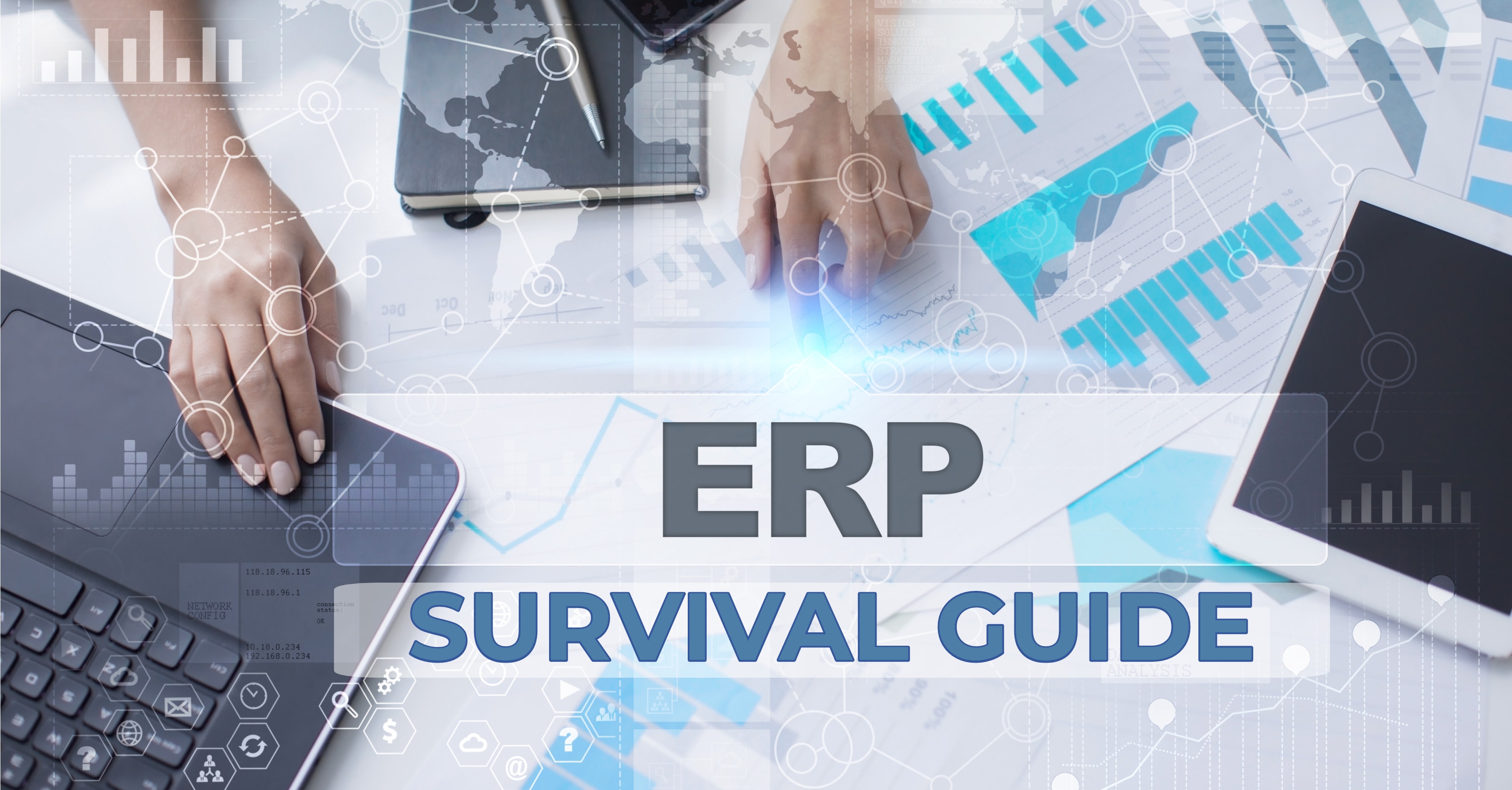Tips for ERP Implementation Success
We all know what happens when you embark on an adventure or mission without any preparation: Disaster. Without the right resources, plans and skills, you could find yourself off course and potentially in danger. An ERP implementation is no different. If everything is in order, you’ll find yourself reaching your target and generating ROI. But if you’re unprepared, you’ll end up wasting your investment and experiencing all-out failure.
To help you successfully complete your implementation, we’ve put together this brief ERP survival guide. Check out a few tips for ERP implementation success.
Assemble the Right People
A common misconception is that ERP implementation is exclusively an IT project. ERP software impacts your enterprise from top to bottom, so decision makers across multiple departments should have a hand in its selection and implementation. As you’re determining ERP requirements, speak to managers in departments that will be using the future system to learn more about their current pain points and what they want to see from the new solution. A few of the other key players to include on your ERP selection and project teams include:
- Project Manager: The ERP project manager keeps the implementation on track and ensures best practices are followed from start to finish. Responsibilities include mitigating risk, controlling project scope and communicating project requirements to sponsors. This person should have a strong IT background and leadership skills. Often, the role is filled by an external party.
- Executive Leadership: A lack of C-Suite support has killed many implementations. Make sure you have an executive sponsor willing to provide oversight, sign off on project goals and motivate the company.
- Change Agent: Ultimately, everyone who is expected to use the final solution is important to project success. The change agent has the job of taking the lead in change management, answering concerns of end users and ensuring a training strategy is in place. This person should have strong leadership and communication skills and be trusted throughout the company.
Document Everything
To keep up with all the moving parts in your implementation, maintain organized documentation. These resources will allow everyone to stay on the same page and track changes. They can also guide you in your next software project. A few of the documents you’ll need to develop include:
- Business Process Models: Business process modeling is the building block for ERP success. This gives you the chance to map out current workflows, identify issues and redesign workflows to enable business improvements and take advantage of your ERP functionality.
- ERP Requirements: Using business process models and feedback from decision makers across your company, document functional and technical requirements. Prioritize which of these features are most important, and don’t let this document leave your sight throughout the selection process.
- Test Plan: The testing phase is often when project teams cut corners. A test plan document should include all the objectives and features that should be tested manually and/or through automation tools. It should also specify the testing schedule and framework. This will help you execute tests thoroughly, so you can have a smooth rollout.
Seek Expert Guidance
When you’re exploring unfamiliar terrain or taking on a new challenge, it’s safer and easier to enlist the help of an expert guide. That’s what an ERP consulting firm is to your implementation project. Top-tier consultants are certified IT professionals who have experience in executing ERP projects as well as a deep understanding of the client’s needs. They’ll take you from the discovery phase to go live, steering you clear of delays, cost overrun and scope creep.
To team up with the right consultants, make sure to do your homework. Find a firm that specializes in your industry and the software of your choice. Look over their methodology and offerings. Some consultants finish the implementation and leave without a trace. Even worse, some consultants will go into the project without any sort of game plan. Whoever you hire to work on your project should adhere to a proven methodology and serve as a single touchpoint for all your current and future software needs.
Wrap Up
Never embark on an ERP implementation unprepared. Without the proper resources and strategies in place, you’ll wind up with a wasted investment. But when you have a well-documented plan and the right people at your side, you’ve set yourself up for a solution that will yield major business improvements.
Datix has recovered a number of disastrous ERP projects to help our clients reach their business goals. We’re an Epicor Gold Partner that has specialized in delivering ERP solutions for over 20 years. Our certified consultants come from manufacturing and distribution backgrounds, equipping us with the knowledge to provide clients with an ERP system aligned to their business needs. A one-stop shop for a wide range of scalable software solutions, Datix is committed to working with you from start to finish to transform your business.
Don’t become a victim of ERP failure. Find out how our ERP experts can help you survive your next project!
{{cta(‘770c1544-d87d-4acb-9fc4-7a25e1385094′,’justifycenter’)}}


